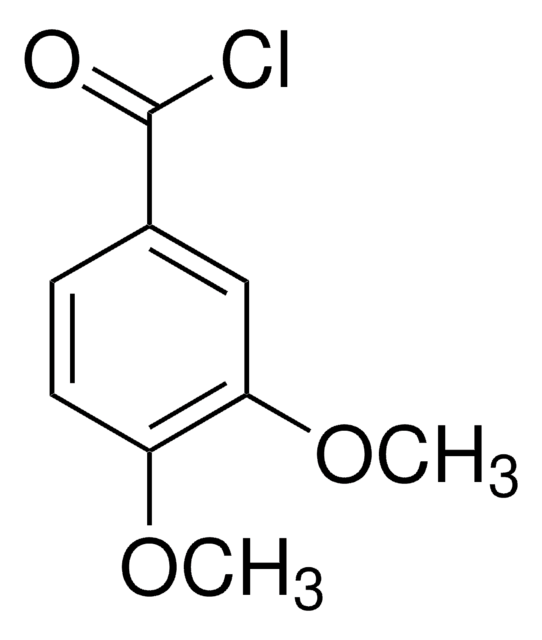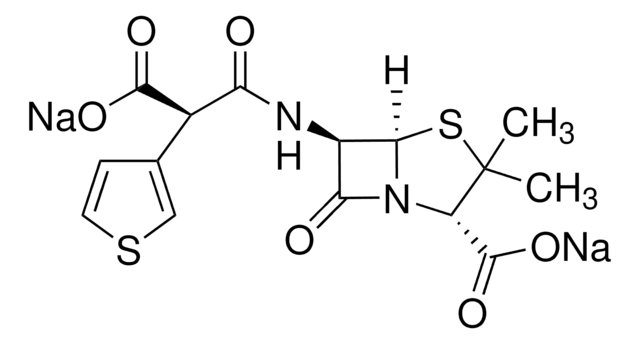D134406
3′,5′-Dimethoxy-4′-hydroxyacetophenone
97%
Synonym(s):
4′-Hydroxy-3′,5′-dimethoxyacetophenone, Acetosyringone
About This Item
Recommended Products
Quality Level
Assay
97%
form
solid
mp
124-127 °C (lit.)
SMILES string
COc1cc(cc(OC)c1O)C(C)=O
InChI
1S/C10H12O4/c1-6(11)7-4-8(13-2)10(12)9(5-7)14-3/h4-5,12H,1-3H3
InChI key
OJOBTAOGJIWAGB-UHFFFAOYSA-N
Looking for similar products? Visit Product Comparison Guide
Application
Signal Word
Warning
Hazard Statements
Precautionary Statements
Hazard Classifications
Eye Irrit. 2 - Skin Irrit. 2 - STOT SE 3
Target Organs
Respiratory system
Storage Class Code
11 - Combustible Solids
WGK
WGK 2
Flash Point(F)
Not applicable
Flash Point(C)
Not applicable
Personal Protective Equipment
Choose from one of the most recent versions:
Certificates of Analysis (COA)
Don't see the Right Version?
If you require a particular version, you can look up a specific certificate by the Lot or Batch number.
Already Own This Product?
Find documentation for the products that you have recently purchased in the Document Library.
Customers Also Viewed
Our team of scientists has experience in all areas of research including Life Science, Material Science, Chemical Synthesis, Chromatography, Analytical and many others.
Contact Technical Service















